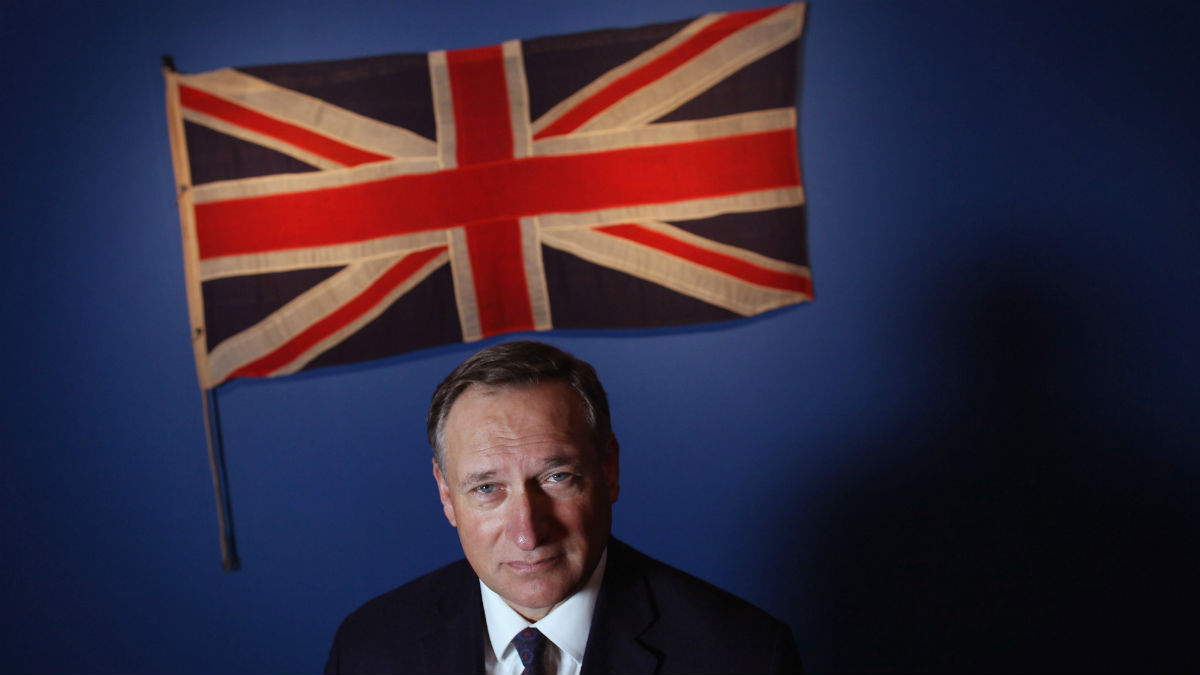David Hempleman-Adams takes on most extreme challenge yet
British explorer will race against time to sail 3,000 miles around the North Pole in just one summer

A free daily email with the biggest news stories of the day – and the best features from TheWeek.com
You are now subscribed
Your newsletter sign-up was successful
Explorer David Hempleman-Adams is preparing to attempt his "most extreme challenge" - sailing around the North Pole in one summer.
The 59-year-old British adventurer and his team will travel 3,000 miles without any support.
The Polar Ocean Challenge is a feat that would have been "considered inconceivable even a decade ago" says The Times.
The Week
Escape your echo chamber. Get the facts behind the news, plus analysis from multiple perspectives.

Sign up for The Week's Free Newsletters
From our morning news briefing to a weekly Good News Newsletter, get the best of The Week delivered directly to your inbox.
From our morning news briefing to a weekly Good News Newsletter, get the best of The Week delivered directly to your inbox.
Following the increase in the level of global warming, the number of ice-free months in the Northeast Passage has increased rapidly and it is now possible to cover the 13,500 nautical miles over two months.
"Ironically, while it's a great year for us, it's a terrible year for the planet," Hempleman-Adams told the Times. "I first went up to the Arctic in 1982. That was just skiing to the North Pole. In that time I've seen massive change up in the high Arctic which has affected not just the ice but the communities up there."
What has the Brit done before?
Hempleman-Adams is the first person to reach the geographic and magnetic North and South Poles as well as climb the highest peaks in all seven continents, an accomplishment known as the Adventurers Grand Slam.
A free daily email with the biggest news stories of the day – and the best features from TheWeek.com
He completed the final leg 1998, reaching the geographic North Pole, which he told the Daily Telegraph was "the hardest element - because the terrain is moving on a daily basis".
Two previous attempts had ended in failure, with the explorer breaking two ribs in the process. Only 12 people have since managed to replicate his endeavours.
Has anyone ever voyaged around the North Pole before?
The Polar Ocean Challenge has been achieved once before, in 2011, using a single-man craft that could be pulled up on to ice floes.
If successful, Hempleman-Adams and his team will be the first to make the trip without touching dry land.
"It’s the most extreme thing I’ve done – 3,000 miles without any support whatsoever," he told the Times. "If you get a good old storm with pack ice, you're by yourself. For me, this is really about going into the unknown. The distances up there are extreme."
Why is it so dangerous?
The journey is a race against time as the crew leave Bristol in mid-June and must reach the Northeast Passage before the end of July. They hope the ice flows will have melted sufficiently to allow access, but the clock will then be ticking for them to go around the North Pole and exit via the Northwest Passage before it freezes again.
"It’s extraordinarily remote,” Hempleman-Adams said. "If you get ice and wind coming from a certain direction, the ice can catch you out against the coast. That could still crush the yacht. There’s a couple of pinch points I have got to get around. Then of course there are polar bears, and the usual problems of sailing in these extreme conditions."
Also on the trip is 14-year-old Ben Edwards, who hopes to raise £20,000 for Addenbrooke's Hospital in Cambridgeshire by becoming the youngest person to sail around the globe.
"He’s going to go out a boy and come back an old man," said Hempleman-Adams.
-
 Political cartoons for February 3
Political cartoons for February 3Cartoons Tuesday’s political cartoons include empty seats, the worst of the worst of bunnies, and more
-
 Trump’s Kennedy Center closure plan draws ire
Trump’s Kennedy Center closure plan draws ireSpeed Read Trump said he will close the center for two years for ‘renovations’
-
 Trump's ‘weaponization czar’ demoted at DOJ
Trump's ‘weaponization czar’ demoted at DOJSpeed Read Ed Martin lost his title as assistant attorney general